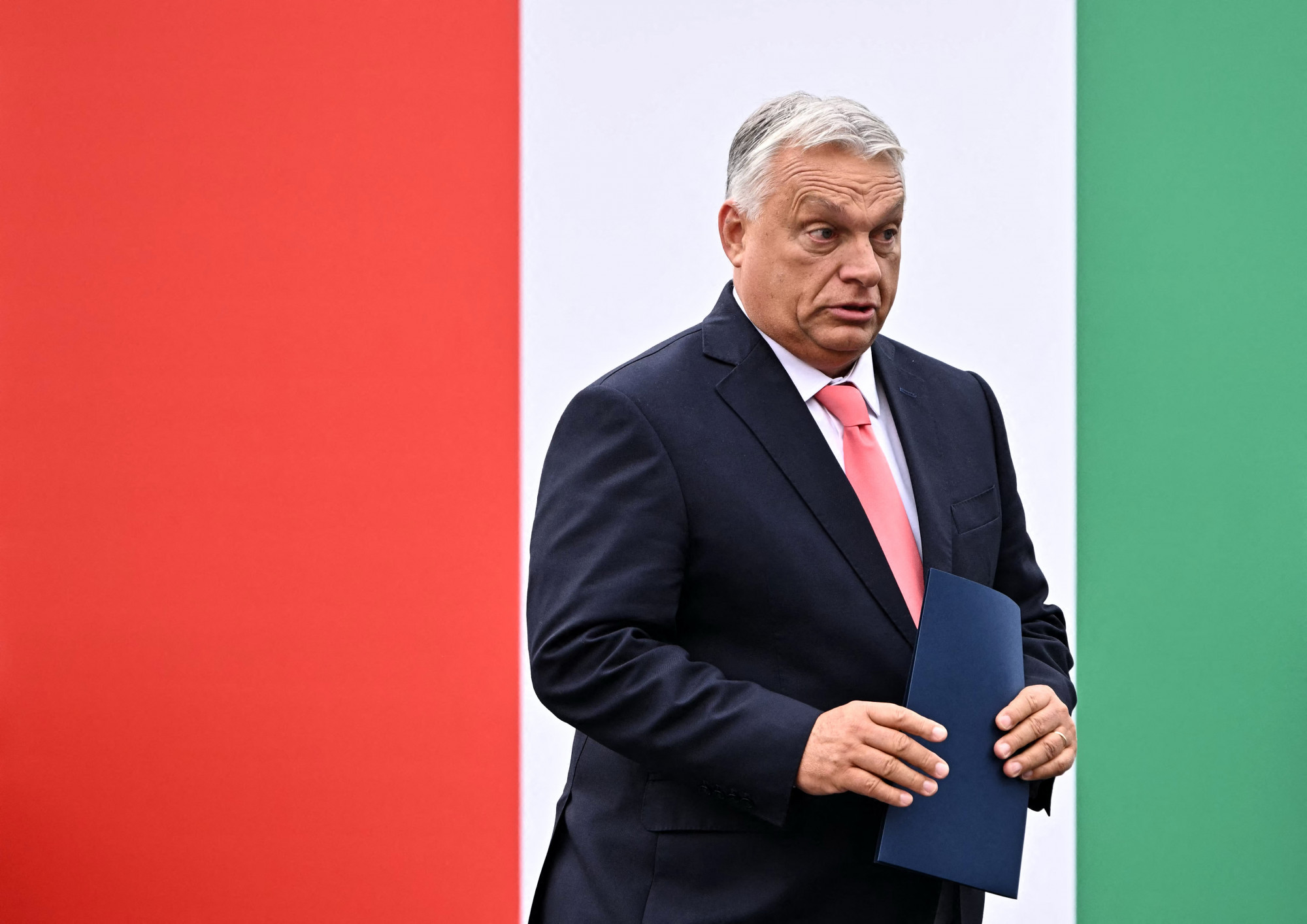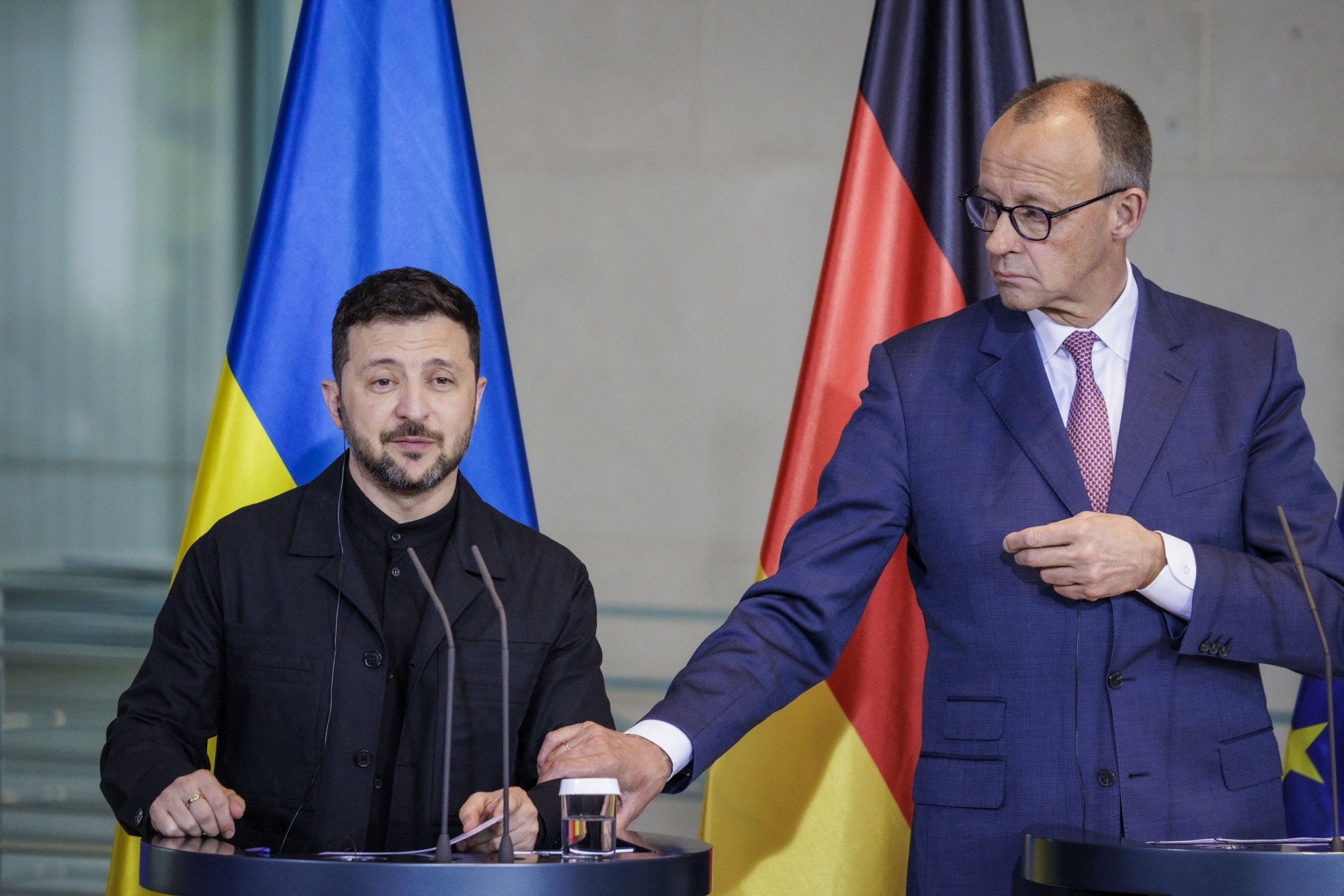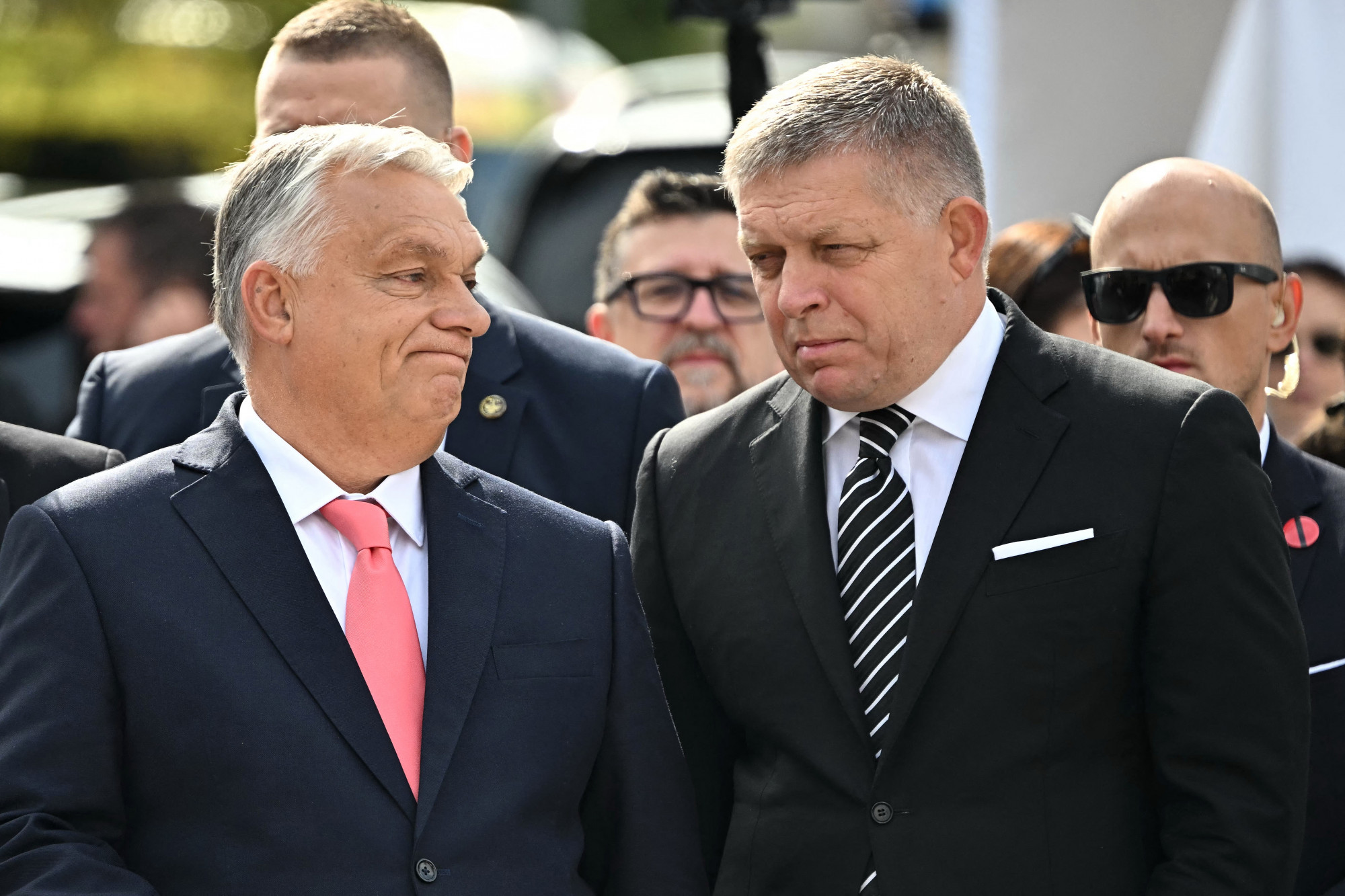Until Tuesday evening, it looked like Viktor Orbán would have the most pleasant EU summit in recent years on Thursday. With the news of the Trump-Putin meeting in Budapest behind him, he could have flown from the Peace March to Brussels with great confidence. However, the White House announced on Tuesday that Donald Trump does not want to meet with Vladimir Putin in the near future, and this news significantly damaged Orbán's position.
The promise of the Budapest summit would have helped the Hungarian Prime Minister from both a political and strategic perspective. Politically, because it would have reinforced his narrative that the weak European Union would not be dealt a hand in the Ukrainian peace issue. In contrast to Hungary, which is even hosting a summit. Thus, the majority supporting Ukraine would have been forced to pay attention to him at the meeting.
And strategically, it would have helped him because the upcoming meeting would have allowed him to argue for postponing war-related agenda items.
In December, another founder of the Patriots for Europe party family, Andrej Babiš, who won the Czech election on October 5, may also sit on the board. However, Orbán will still be in the same isolated position at the current EU summit as he was at the March and June meetings. In June, he vetoed the joint statement on Ukraine for the third time in a row, so the other 26 heads of state and government issued a separate statement on the subject.

Postponing the war-related agenda items would have been particularly useful for Orbán because this time not only Ukraine is on the agenda, but also the issue of the use of Russian assets frozen in the European Union. He can veto the statement on Ukraine for the fourth time without any particular risk, but the topic of Russian assets is so important to the other member states that he must approach the issue cautiously.
The 140 billion euro debate
The fate of frozen Russian assets has long been a topic of discussion in the European Union. So far, the community has only dared to touch the proceeds of the assets, planning to transfer a total of 45 billion euros to Ukraine. However, European Commission President Ursula von der Leyen announced in her September annual review that they are working on a new solution that would support Ukraine with the help (but not by using) frozen Russian assets.
The Commission has since presented its idea. The essence of the plan is that Euroclear, a Belgian financial institution that manages a large part of Russian assets, would buy interest-free bonds from the assets from the Commission. The Commission would use the money to provide a “reparation loan” to Ukraine, which would only have to repay the money if the war aggressor Russia pays it reparations. The loan would amount to 140 billion euros, which would cover Ukraine’s war costs for two years.
Although the plan initially failed to convince the majority of EU member states, the mood changed at the end of September. The turning point was an opinion piece by Friedrich Merz in the Financial Times. After the German Chancellor, who had previously opposed the plan, also came out in support of the loan, most of the previously reluctant member states joined it.

Belgium and Hungary, on the other hand, remained in the undecided camp. The Belgian government is cautious on the issue because Euroclear, which manages Russian assets, is located in Belgium, so if there is a mistake in the plan, Russia could demand its money from Belgium. The Commission also took the Belgians' concerns into account and promised guarantees in a letter to the Belgian Prime Minister. According to press reports, Belgium will not veto the part regarding the use of Russian assets.
However, the situation in Hungary is completely different. On October 15, Orbán said that he would consult with the Russians on the issue before the EU summit because he wanted to know what the consequences of his next steps might be. After all, if Hungarian companies could face retaliation, he would not support the use of Russian assets. Although he had already spoken on October 16 about having consulted with the Russians, he has not yet said anything about the response he received.
The situation is further complicated by the fact that the extension of sanctions that freeze Russian assets must be voted on again and again every six months. This is important because even if Orbán votes for the reparations loan now, the Hungarian government could easily veto it at the next meeting of the Council of Foreign Ministers on the extension of sanctions. This would result in the release of Russian assets and the collapse of the Commission's plan.
Although the Hungarian government has voted for the six-month extension every time, the Commission is wary of Orbán, who is seen by many in Brussels as an agent of Putin. For this reason, it is examining a legal solution that would ensure that the extension of sanctions can be decided by qualified majority instead of unanimity. The Commission has not yet come up with a specific proposal, but some member states have already indicated that they consider the change in decision-making to be legally problematic.
At present, the most likely scenario seems to be that the EU heads of state and government will task the Commission at the EU summit to develop a more thorough plan for the use of Russian assets. This part of the text will likely be voted on by Orbán. However, intensive bargaining is expected in the next two months, as the major member states want to make a final decision on the issue at the EU summit in December. Orbán will then have to decide whether he really supports the proposal and, if so, what he wants in return for his vote.
Fico, the key player
In addition to the frozen Russian assets, the EU summit will also discuss the 19th sanctions package against Russia. The package, presented by von der Leyen in September, would, among other things, ban the import of Russian liquefied natural gas (LNG) from January 1, 2027, sanction 118 more ships of the Russian shadow fleet, and restrict the activities of Russian organizations in the cryptocurrency market.
Austria and Slovakia initially opposed the sanctions package, but only the latter is willing to negotiate. Slovak Prime Minister Robert Fico is using his veto threat as a bargaining chip, and wants to achieve a joint declaration at the EU summit that provides political guidance to address the problems of the automotive industry and reduce high energy prices that are plaguing the European economy.
After Von der Leyen addressed Fico's demands in a separate letter this week, Commission leaders are confident that the Slovak Prime Minister will lift his veto and they can adopt the sanctions package as quickly as possible.

The EU summit will also discuss defense policy, the competitiveness of the European economy, the housing crisis, the situation in the Middle East after the Gaza ceasefire, and migration.
The summit begins on Thursday morning. The leaders will first hear from the President of the European Parliament, then hold talks with Ukrainian President Volodymyr Zelensky. They will then turn to Ukraine-related issues, including the issue of frozen Russian assets.
Since Orbán will start his peace march speech at Kossuth Square at 1 p.m., he will most likely not have time to address the Ukrainian issues in time. However, this does not mean that others do not have to take his opinion into account. He sent his position in writing in advance to the President of the European Council, and he also asked Robert Fico to represent him until he arrives in Brussels.

